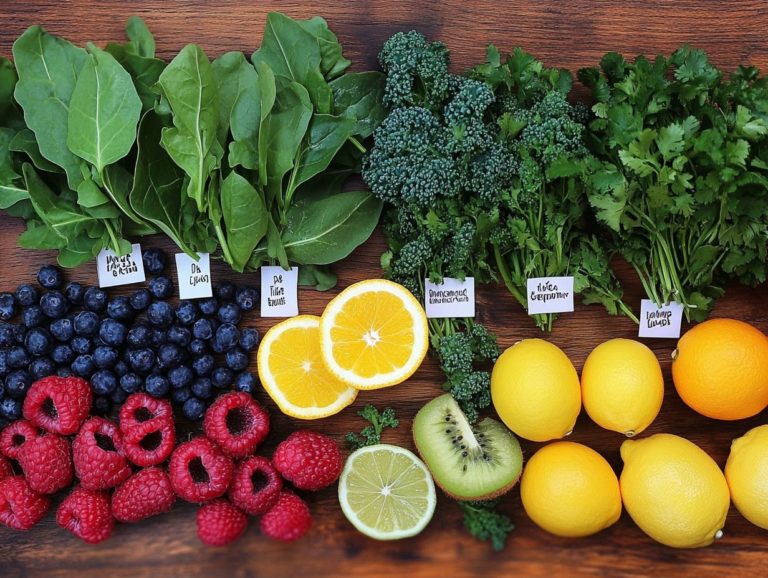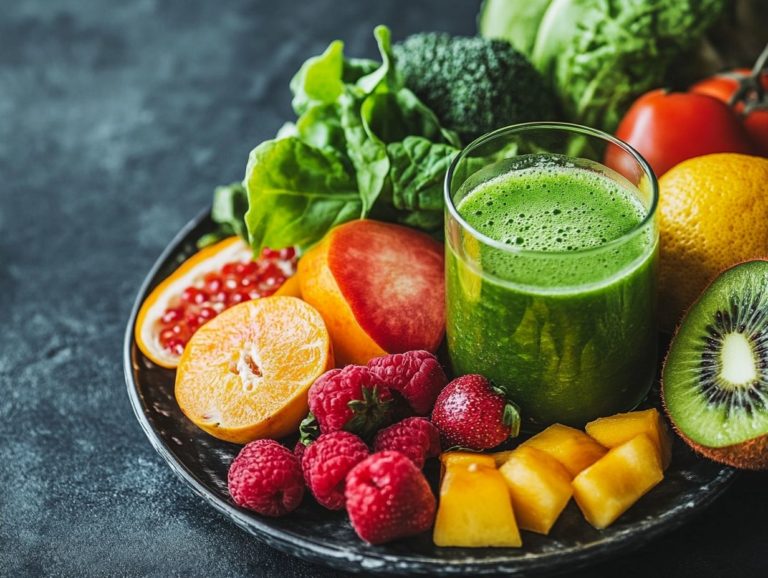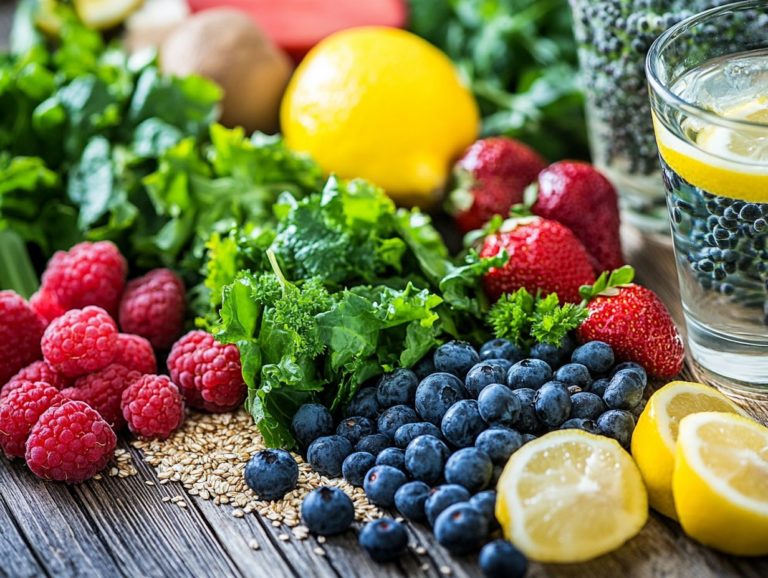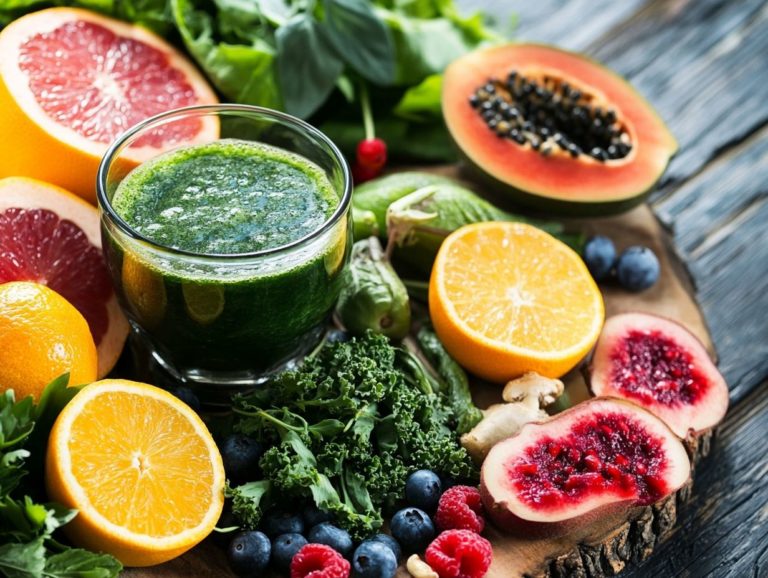The Role of Bacteria in Detoxification
In your pursuit of better health, detoxification often takes the spotlight, promising to cleanse your body of toxins and enhance your overall well-being.
But have you considered the essential role bacteria play in this process? Join us as we explore the surprising link between bacteria and detoxification. This exploration delves into what detoxification truly is, how it operates, and the significant influence of both probiotic and pathogenic bacteria.
You’ll discover how to maintain a healthy bacterial balance, the potential risks of imbalance, and natural methods to support your gut. Act now to ensure your gut stays healthy and balanced!
Contents
Key Takeaways:
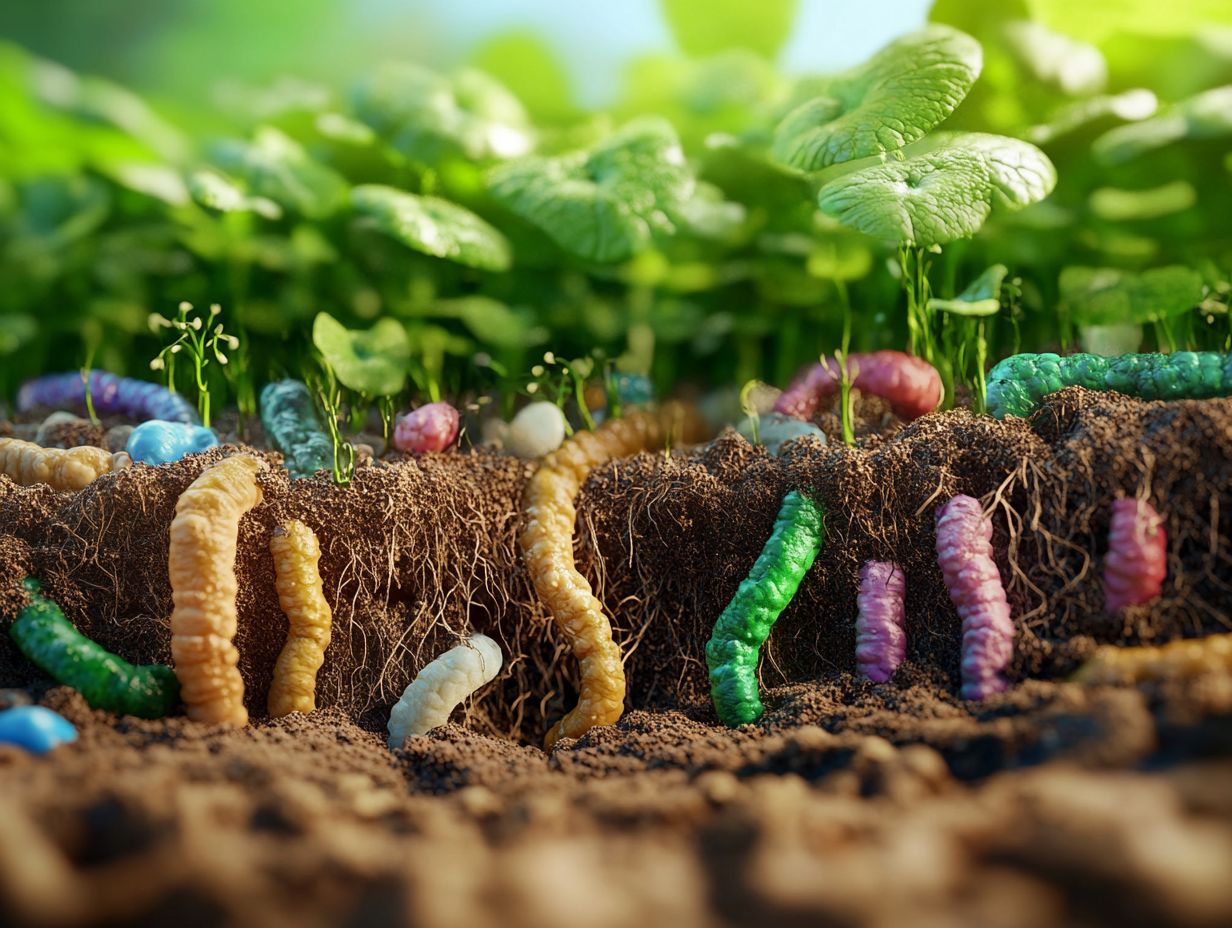
- Bacteria play a crucial role in detoxification, aiding in the breakdown and elimination of toxins in the body.
- The balance of bacteria in the gut can impact detoxification, with both probiotic and pathogenic bacteria having an effect.
- Supporting a healthy balance of bacteria through natural methods and supplements can aid in effective detoxification and overall well-being.
Understanding Bacteria and Detoxification
Understanding the role of bacteria in detoxification is essential for unraveling the intricate relationships between groups of bacteria and the environmental factors that impact health and disease.
The gut microbiota of insects, especially in species like *Cryptorhynchus lapathi*, provides a captivating insight into how these microorganisms contribute to detoxification processes. By providing essential nutrients, including amino acids and vitamins, these bacteria actively combat harmful agents such as heavy metals and mycotoxins.
In doing so, they play a vital role in managing food-related diseases and enhancing overall well-being. Furthermore, their role in nitrogen metabolism and sulfur metabolism is crucial.
What is Detoxification and How Does it Work?
Detoxification is a fascinating biological process through which your body neutralizes and eliminates harmful substances, such as mycotoxins and heavy metals, and various toxins lurking in the food you eat. This intricate process relies on various ways your body gets rid of harmful substances that involve both enzymatic and microbial activities, ensuring that those harmful agents are effectively neutralized before they can escalate into serious health risks.
Within this complex system, your liver takes center stage, employing both phase I and phase II enzymatic reactions to transform lipid-soluble compounds into water-soluble forms, making them much easier to excrete. There is also a growing understanding of how gut bacteria help detoxify. Certain beneficial bacteria can metabolize specific toxins, thereby modulating your body s overall toxic burden.
These microbial interactions can influence critical biological pathways like the NF-kB signaling pathway, which is essential for inflammatory responses and cellular detoxification. This showcases the remarkable complexity and interconnectivity of detoxification within your living system.
The Importance of Bacteria in Detoxification
The significance of bacteria in detoxification is truly critical. These remarkable microorganisms create complex communities that are essential in neutralizing harmful substances and delivering vital nutrients.
Through sophisticated processes like amino acid biosynthesis, protein digestion, and energy metabolism, bacteria effectively dismantle toxic components, thereby safeguarding against food-related illnesses and promoting overall health. Their role in microbial antagonism is also vital in this context.
By harnessing advanced detoxification technologies, you can tap into the incredible potential of these tiny allies for a healthier, more vibrant life.
In conclusion, maintaining a healthy balance of bacteria is vital for effective detoxification and overall wellness. Understanding this relationship can empower you to make informed choices that support your health.
How Bacteria Aid in Detoxification Processes
Bacteria play a vital role in detoxification by improving the digestion of proteins, lipids, and carbohydrates. These components are essential for effective nutrient absorption and toxin elimination.
Bacteria use complex metabolic pathways. These include carbohydrate and lipid digestion. Through these processes, they synthesize amino acids and other crucial nutrients, optimizing your body’s detoxification mechanisms. Additionally, understanding the role of saunas in detoxification can further enhance these natural processes.
When these beneficial bacteria break down proteins, they produce peptides and amino acids that are essential for cellular repair and growth. Lipid digestion also creates fatty acids that can help modulate inflammation. Meanwhile, carbohydrate fermentation results in short-chain fatty acids, which are key to maintaining gut health. The biosynthesis of amino acids helps reduce the impact of harmful substances, serving as building blocks for various proteins involved in detoxifying enzymes.
Together, these processes not only enhance nutrient availability but also significantly reduce the toxic load on your gastrointestinal system, ultimately boosting your overall well-being.
Types of Bacteria Involved in Detoxification
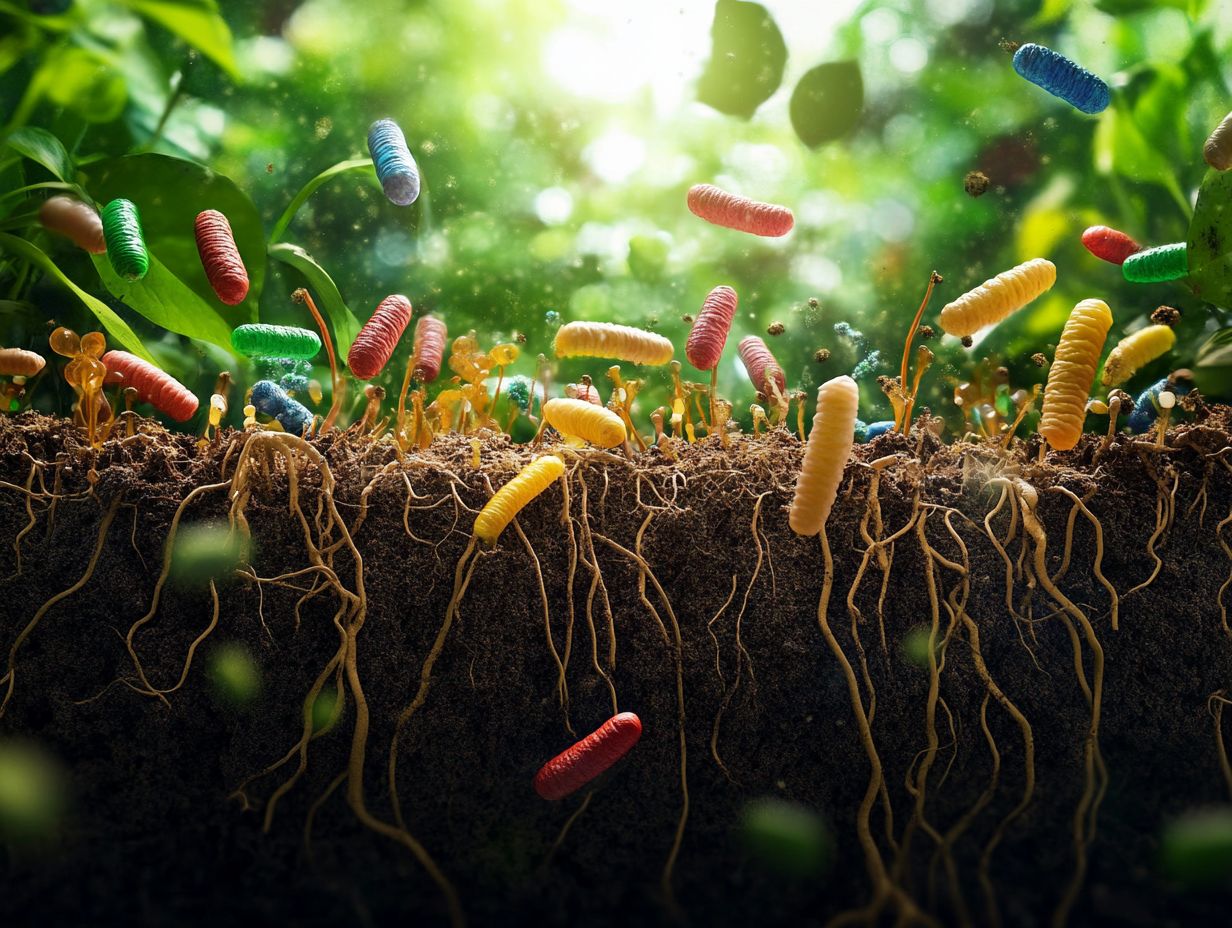
The types of bacteria engaged in detoxification can be elegantly divided into probiotic and pathogenic categories. A notable example is Escherichia coli, each fulfilling unique roles in your health landscape.
Probiotic bacteria, such as lactic acid bacteria, work diligently to detoxify harmful agents, offering protective benefits. In contrast, pathogenic bacteria like Escherichia coli can jeopardize your well-being. This highlights the necessity for a harmonious microbial balance within your gut.
Probiotic and Pathogenic Bacteria
Probiotic bacteria are essential for enhancing detoxification, as they help in fighting off harmful bacteria that can disrupt your gut health. These beneficial microorganisms not only aid in breaking down toxins but also maintain a balanced gut ecosystem, effectively reducing the adverse effects of harmful bacteria.
They play a significant role in ensuring proper nutrient absorption while bolstering your immune system. This creates a less welcoming environment for harmful microbes. Conversely, unchecked growth of pathogenic bacteria can lead to a range of health complications, including infections and inflammatory responses. This imbalance, often a result of poor diet or excessive antibiotic use, highlights the necessity of a healthy microbiome for effective detoxification and overall well-being.
Probiotic bacteria like Lactobacillus and Bifidobacterium actively outcompete these harmful strains, ultimately lowering the risks associated with gut dysbiosis and fostering long-term health benefits.
How Bacteria Can Impact Detoxification
Did you know bacteria are key players in detoxifying your body? They maintain a delicate balance within your gut microbiota, which is essential for effective mechanisms against heavy metals and mycotoxins.
When this bacterial equilibrium is disrupted, it can compromise your body’s detoxification capabilities. This ultimately heightens your vulnerability to harmful substances and food-related diseases.
Explore how you can support your gut bacteria for a healthier you!
Factors that Affect Bacterial Balance
Several factors can influence your bacterial balance, including your dietary choices, exposure to heavy metals, and the presence of pesticides and mycotoxins in your food. These elements can disrupt the detoxification mechanisms that your bacteria rely on to combat harmful substances, ultimately increasing your risk of food-related diseases.
This imbalance hampers your microbiome’s ability to process toxins effectively. It can also compromise your digestive health and immune function.
For example, a diet rich in processed sugars and low in fiber can encourage the overgrowth of harmful bacteria, jeopardizing the gut’s protective barrier.
Environmental toxins, like pollutants in the air and water, can further strain your body’s detoxification pathways. This highlights the intricate relationship between your lifestyle choices and bacterial health.
Regular health practices are crucial for nurturing a thriving microbiome. Eating a diverse diet filled with whole foods and incorporating probiotics enhances your body’s natural detoxification ability.
Ways to Support Healthy Bacteria for Detoxification
Supporting healthy bacteria for detoxification is possible with natural methods and supplements. One such supplement is a type of microorganism that helps beneficial bacteria, known as lactic acid bacteria, to work better.
By adopting these approaches, you promote effective detoxification while ensuring your body receives the essential nutrients required for optimal health.
Natural Methods and Supplements
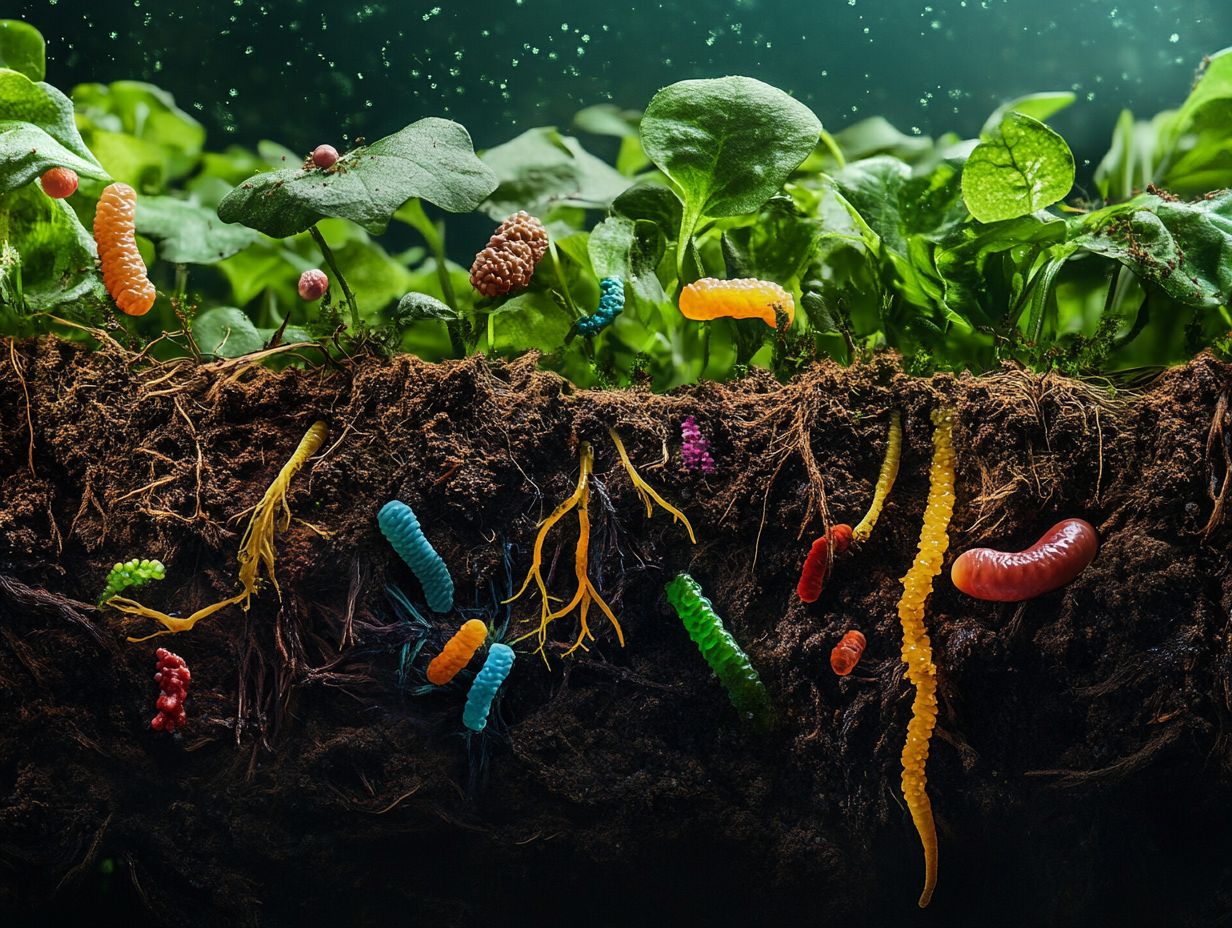
Natural methods and supplements, such as dietary fiber and probiotic bacteria, play a crucial role in enhancing detoxification and supporting gut health. By embracing these approaches, you promote a diverse bacterial community, which is essential for efficient detoxification and overall well-being.
Incorporating soluble fiber from sources like oats, legumes, and fruits can effectively nurture the growth of beneficial bacteria. These foods facilitate regular bowel movements and help bind toxins, making it easier for your body to eliminate them.
Fermented foods, such as yogurt, kefir, and sauerkraut, are rich in probiotics. They introduce live beneficial bacteria that help maintain a healthy microbiome. Additionally, certain supplements like prebiotics can further enrich your gut flora by nourishing these good bacteria.
By maintaining a balanced diet abundant in these natural elements, you can significantly enhance your bacterial health and detoxification capabilities.
Potential Risks and Precautions
While the benefits of bacteria in detoxification are substantial, it’s essential to weigh the potential risks and precautions. You should be particularly mindful of bacterial imbalance, as it can lead to food-related diseases.
Disruptions in microbial antagonism can undermine detoxification technology. It is imperative for you to take preventive measures to sustain a healthy gut microbiome.
Understanding the Risks of Bacterial Imbalance
Understanding the risks associated with bacterial imbalance is crucial. It can compromise your detoxification mechanisms, increase your vulnerability to mycotoxins and heavy metals, and heighten the risk of food-related diseases. This imbalance may present itself through various health issues, underscoring the importance of carefully managing your gut health.
When the delicate ecosystem of your gut bacteria is disrupted, you might experience a range of conditions, including food intolerances, inflammatory bowel disease, or even chronic fatigue syndrome. The presence of harmful bacteria can hinder your body’s ability to process toxins effectively, leading to a buildup of harmful substances that exacerbate your symptoms.
Researchers have linked bacterial imbalance to obesity and metabolic disorders. The health of your microbiome plays a vital role in weight management and metabolic functions. Prioritizing gut health is essential not only for effective detoxification but also for maintaining overall wellness and preventing chronic diseases.
Frequently Asked Questions
What is the role of bacteria in detoxification?
Bacteria play a crucial role in detoxification by breaking down harmful substances and converting them into less harmful or even beneficial compounds.
How do bacteria aid in detoxification?

Bacteria use their metabolic processes to break down toxins and pollutants, making them easier for the body to eliminate.
What types of toxins can bacteria detoxify?
Bacteria are capable of detoxifying a wide range of toxins, including heavy metals, pesticides, and chemicals found in food and the environment.
Can bacteria also produce toxins?
Yes, some bacteria can produce toxins that can be harmful to humans. However, in the process of detoxification, bacteria convert these toxins into less harmful forms.
How does the gut microbiome play a role in detoxification?
The gut microbiome, made up of trillions of bacteria in our digestive tract, helps break down and eliminate toxins from the food we eat and the environment we are exposed to.
Are all bacteria beneficial for detoxification?
No, not all bacteria are beneficial for detoxification. Some strains can contribute to the production of toxins. It is important to maintain a healthy balance of bacteria in the body for optimal detoxification.


